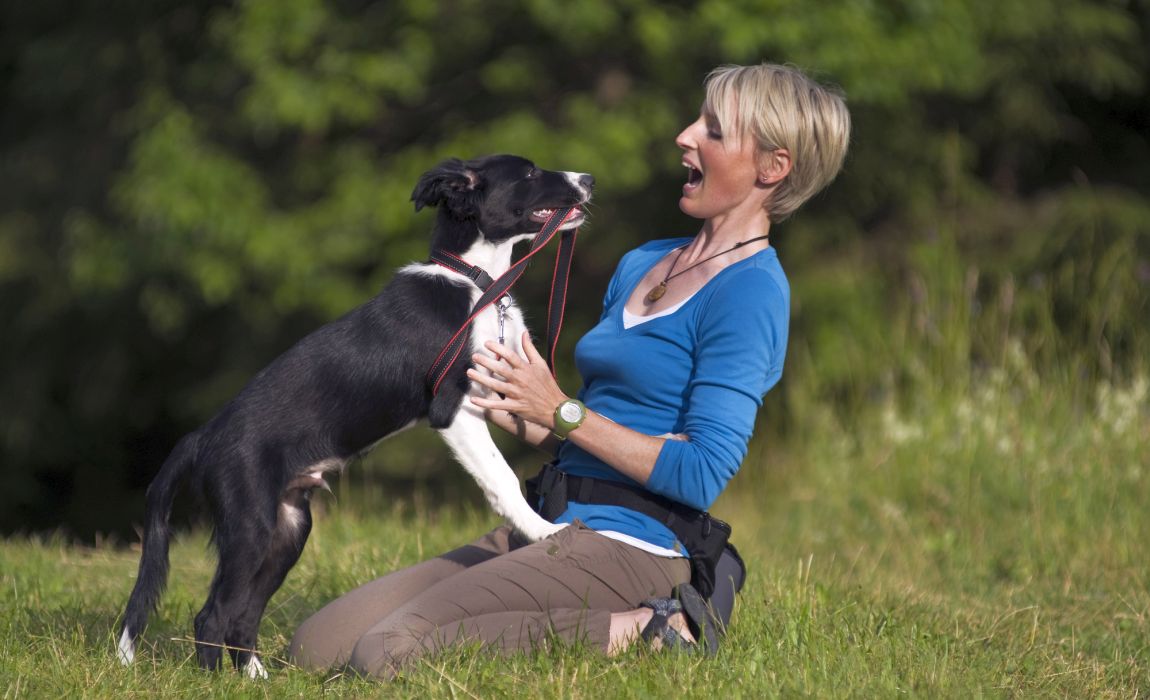
Within two to three months, puppies’ teeth are still developing, so to explore the world and play, they bite. This is also called mouthing. Intentions of being violent may be rare, but sometimes, they can dig in their 28 teeth like needles.
Some owners tolerate this rough playing behavior, especially when their dogs just bite mildly. But there are other puppies, depending on the breed, that can really hurt. In this case, it’s understandable for owners to strive to put a stop to their puppies’ harmful play behavior.
Why Do Puppies Play Roughly?
Playing roughly or what is called roughhousing has always been a huge part of being a dog. They bite, nip, swipe, jump, or bark, which may be done in a friendly manner but can easily go overboard. It’s their way to interact with people and other animals.
Puppies learn to play roughly from other dogs in the area, especially larger dogs. They usually leave their mouths hanging open, so they can play-bite without actually hurting each other. Back in the wild, they do this to gain survival skills.
Usually, for up to six months, your puppy will learn how to play gently with other dogs, especially when one yelps out in pain and quits the game. That will greatly help the puppy to realize that when it hurts the other, it’s game over. So, the next time they play, the puppy will keep the unsaid rule in mind.
But sometimes, owners could be the reason their dogs bite, unknowingly encouraging them to do so by using their legs, arms, or hands roughly while playing, such as tug of war. This is a game of dominance, and your puppy will most likely give its best to win; hence, the rough behavior.
Dogs’ play is mainly to exert dominance over the other dog, animal, toy, or person, which is one of the reasons they might have to be spayed or neutered—the process reduces their impulse to fight over their dominance. If they’re too aggressive, spaying and neutering may be very necessary.
How to Tell If Biting Means Fun or Aggression
It’s a good thing when your dog plays with you; this just means they see you not as a threat but a friend, but you should also be able to tell the difference whether they’re roughing it out for fun, to gain your attention and affection, or when they’re actually showing signs of aggression.
Normally, when your dog’s intention is to play, it bows its head then raises its hind part to you. It wags its tail, barks and growls at a higher pitch, shows its front side, then darts back and forth to you. With its mouth open and relaxed and ears perked up, it attacks objects or people spontaneously.
It’s a different thing for aggression. Your dog will tend to curl its lips, stiffen its posture, transfix its gaze, pin back its ears, and growl in a deep tone for a long time. It will stand rigidly rather than bow playfully.
When your puppy shows unruly behaviors such as the above, it’s more likely to be aggressive in the future too, especially if left alone without a proper puppy training program. The best that you can do is nip the aggression in the bud, most importantly not with punishment or violence.
How to Teach Your Puppy to Be Gentle
By yourself or with the help of puppy training experts, you can always successfully teach your puppy to reduce their rough behaviors, even when it just plays biting. Here are some ways:
Once they bite, it’s game over
You can learn from other dogs your puppy plays with—once they’re bitten harshly, they yelp, then most likely would leave the game. Do the same way. Once it bites, remove yourself.
This helps your puppy to realize that it gets no attention when it plays that way. Play with your puppy again. When it tends to stop when it bites then lick you instead, praise your puppy by offering treats to encourage the behavior.
Teeth aren’t for the skin
Teach your puppy that its teeth aren’t for human skin. Once it starts to bite your toes or fingers, give it substitutes like a chew bone or toy. When it bites you while you’re petting it, use the other hand to divert its attention, such as by feeding it with tidbits or giving it a toy.
Tap on Expert Trainer’s Help
Your puppy may keep on biting you because it needs an outlet for its energy, it needs mental stimulation or socialization, etc. Understand your dog’s behavior better by tapping on the experts’ help.
Meta title; How to Stop Your Puppy’s Rough Playing Behavior
meta desc: When dogs play roughly, they bite their owners but not with the intention to be violent. Nip the behavior early on. Read on to learn some ways to do that.

